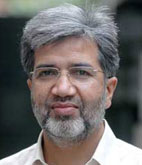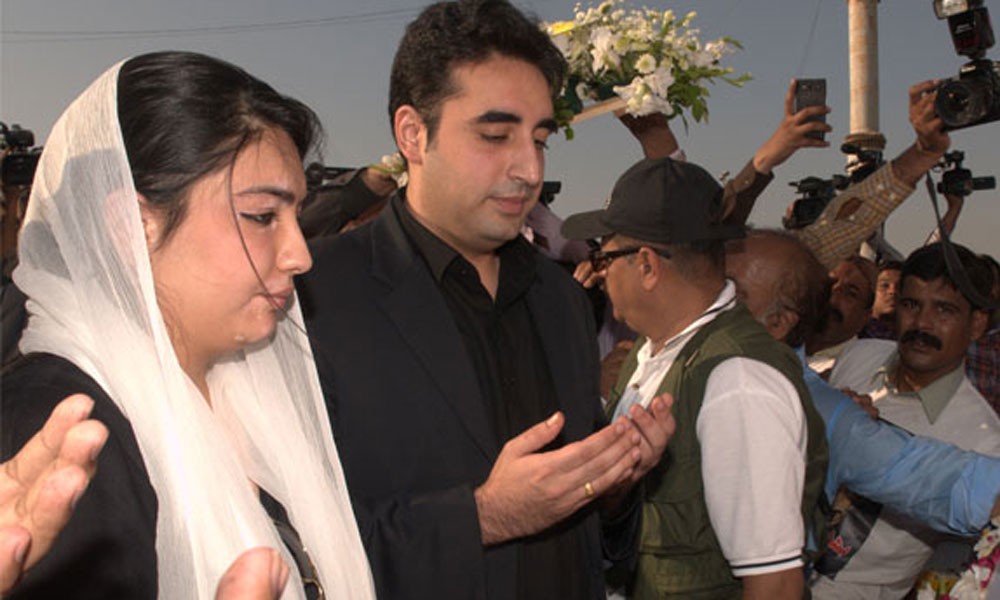Vivek Katju
Even if questions over Khan's commitment to improve the situation for minorities are kept aside, he cannot take on the army and the ulema to address institutionalised discrimination.
Twice in the past fortnight, Pakistan Prime Minister Imran Khan criticised the current treatment of minorities in India. Naseeruddin Shah’s comments, which captured the anguish of many Indians, on the December 3 Bulandshahr mob violence during which inspector Subodh Kumar Singh was murdered provided him the opportunity to do so.
On December 22, Khan said, “We will show the Modi government how to treat minorities. Even in India, people are saying that minorities are not being treated as equal citizens”. Three days later, on Pakistan’s founder Mohammad Ali Jinnah’s birthday, Khan tweeted, “Quaid envisaged Pakistan as a democratic, just and compassionate nation. Most importantly he wanted our minorities to be equal citizens. It should be remembered that his early political career was as an ambassador for Hindu-Muslim unity”.
These have not been the only instances where Khan has felt impelled to point fingers at India for ‘mistreating’ its minorities, while urging his own people to treat Pakistan’s minorities fairly and with dignity.
In a video of his speeches on minorities put out by the Pakistan Tehreek -e-Insaf (PTI) before the 2018 national elections, he urged equal rights and opportunities for the minorities in keeping with the system established by Prophet Mohammad in Medina and in accordance with Jinnah’s vision as mentioned in his August 11 speech to the Pakistan Constituent Assembly.
Delving into history, Khan made the same claim as he did now in his December 25 tweets that Jinnah left the Congress and joined the Muslim League for the creation of Pakistan only when he realised that Muslims would not get their rights and remain equal citizens in a united India.
In this context he went on to state, “As I look at Narendra Modi’s India, truly Quaid-e-Azam’s apprehensions were justified in view of the condition of the Muslims, minorities and the Christian community there”.
India and Pakistan have traded accusations on the treatment of minorities in the past. In a reply to a question in the Rajya Sabha in July last year, external affairs minister Sushma Swaraj said, “The issue of the continued poor condition and mistreatment of minority communities in Pakistan has been highlighted by India at the United Nations Human Rights Council (UNHRC)”.
Pakistan and minority issues
The main question before Khan, however, is not how India treats its minorities, but if he can move Pakistan in a positive direction on minority issues. For this purpose, he will have to undertake a ruthless examination of the compatibility of the Medina example based on a theological model with the nature of Jinnah’s vision for Pakistan, which was rooted in a liberal secular approach.
He will also have to take into account the Pakistan army’s ideological vision and its determination to uphold it. Finally, there is the question of the depth and clarity of Khan’s own convictions and of his political stamina.
In her book on Pakistan’s religious minorities, Purifying the Land of the Pure, Farahnaz Ispahani notes the country’s “foundational dilemma”: is it a “Muslim homeland” or an “Islamic state”? The Medina example calls for the latter while Jinnah’s address is based on the former idea. Jinnah’s August 11 speech envisions a country in which all men are equal “no matter what is his colour, caste, or creed is first, second, and last a citizen of the State with equal rights, privileges and obligations, there will be no end of progress you will make”.
He elaborated this further in the same speech:
You are free; you are free to go to your temples, you are free to go to your mosques or to any other place or worship in this state of Pakistan. You may belong to any religion or caste or creed—that has nothing to do with the business of the State.
Prima facie, there is no doubt that these words reflected the views of Jinnah, the liberal-moderate who was immersed in British constitutionalism and had, till he turned his back on the Congress, a horror for mixing religion and politics. Clearly, his inspiration derived from classic secularism.The problem was that in destroying the prospects of a united secular India through his advocacy of Pakistan on the basis of the two-nation theory, Jinnah had also effectively thwarted the chance of Pakistan becoming a secular, democratic and liberal homeland where Muslims would be in a majority. Another problem with Jinnah’s position was the implication that liberal and democratic values were safe in a Muslim majority country but not in one with a Hindu majority.
The communal genie had been effectively let out by the formation of the Muslim League in 1906 and Jinnah relentlessly used it to achieve Pakistan. At the time of the creation of Pakistan, it was simply too late for him to ask his people to become secular and treat the minorities as equal.
Jinnah’s speech ignored
Thus, Jinnah’s August 11 address embarrassed his Muslim League colleagues who, in any case, had no commitment to liberal principles; his words were therefore ignored. Jinnah passed away in September 1948 and the question of the fundamental orientation of Pakistan’s polity remained unresolved.
The ulema (a body of Islamic scholars), including Maulana Maududi the founder of the Jamaat-e- Islami, pressed for a clear declaration that Pakistan will be an Islamic country where primacy would be given to the Islamic sharia in the legal structure of the country. Prime Minister Liaqat Ali Khan tried to bridge the irreconcilable chasm between an Islamic state and a secular homeland for Muslims by a compromise in the shape of an Objectives Resolution adopted in 1949. It has since then been part of every Pakistani constitution.
The Objectives Resolution’s first assertion itself made Pakistan a theocratic state: “Sovereignty belongs to Allah alone,” it declared. Having done so, it tried to impart a critical role for the people by creating the fudge of its delegation to the “people” who could only exercise it within the bounds prescribed by Allah himself.
The resolution further clarified that Muslims would be “enabled to lead their lives in the individual and collective spheres in accordance with the teaching of Islam as set out in the holy Quran and Sunnah”. And as for non-Muslims, it merely provided the assurance that, “Adequate provision shall be made for the minorities to freely profess and practice their religions and develop their cultures.”
Thus, within months of Jinnah’s death, the notion of Pakistan as a Muslim homeland based on secular, liberal principles was formally set aside in favour of an Islamic state. Since then, no Pakistani leader has ever sought to go back to Jinnah’s August speech.
Certainly, Imran Khan has no intention to do so despite his invoking his name. Naya Pakistan will never be the Pakistan Jinnah envisioned in his August 11 speech. In fact, Khan, like all his predecessors, will continue to paint Jinnah in Islamic, if not Islamist, colours.
Once the direction of the country as an Islamic state was set, it was inevitable that the ulema would gradually gain ideological ascendancy. Initially, the Pakistani political class and the army sought to constrain their role in policy making. Thus, they resisted the declaration of the Ahmadis as non-Muslims, though they allowed full play to popular prejudice against the Hindus.
Tall talk, but no sympathy
For all his tall talk, Imran Khan also has no time or sympathy for the Ahmadis. This was demonstrated after he rescinded the inclusion of Atif Mian, an outstanding economist, from the Prime Ministers Economic Advisory Council only because the ulema protested that an Ahmadi should not be given an important office.
President General Zia-ul-Haq took Pakistan towards austere and rigid Islam. He sought to mainstream the sharia through the country’s legal system and made the death penalty mandatory under the country’s blasphemy laws. The burden of these laws and the way they are implemented has been borne by the minorities.
The Pakistani courts have seldom shown the courage to stand against popular opinion and provide justice. It was therefore creditable that the Supreme Court recently acquitted Asia Bibi, but the Imran Khan government has not had the courage to let her travel abroad because of fear of the ulema, who have sought a revision of the decision.
The Pakistan army also has a view on the ideological orientation of the country. It conceives the country as an Islamic state and as a body corporate, is comfortable with Zia’s austere vision of Islam, though lip-service is paid to moderate Islam. The army looks upon the minorities with suspicion, though it has positively treated the Sikhs to dilute their commitment to India. This is a vain hope, but Pakistan persists pursuing it nevertheless.
Lahore based lawyer Latif Hamdani summed up the situation of the non-Muslims in Pakistan in an article carried on the Jinnah institute website a few years ago. He wrote:
While the constitution of Pakistan 1973 guarantees equality of citizenship, it creates far too many bars against Non-Muslims for this to mean anything concrete. A Non-Muslim Pakistani today is not allowed to hold the highest offices in the state. A Non-Muslim member of parliament has to protect the undefined Islamic ideology.
Even if Imran Khan’s oft repeated desire to improve the situation of Pakistani minorities is true, he simply cannot take on the army or the ulema to address the institutionalised discrimination against the minorities, nor their general exploitation and maltreatment.
All he can do is to make rhetorical statements and try to put India in the dock while Pakistan remains in the grip of communalism and sectarianism.










